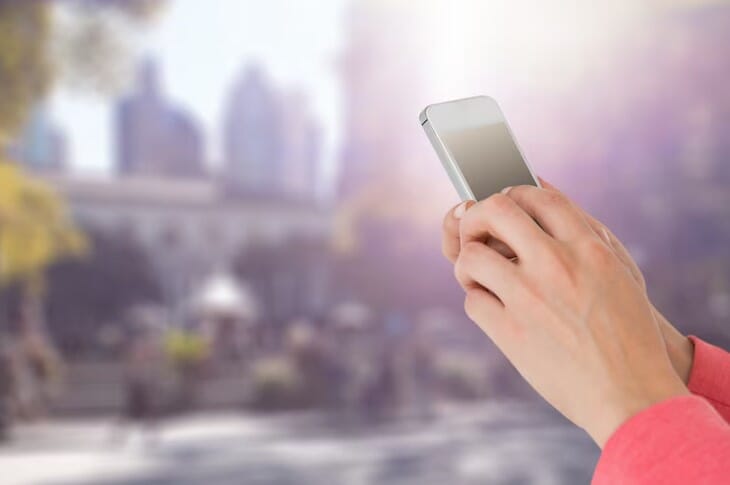
Using Social Media to Validate Unknown Numbers: Pros and Cons
Introduction
In an era where communication is just a click away, the challenge of identifying unknown phone numbers has become increasingly prevalent. With the proliferation of spam calls, robocalls, and various forms of telemarketing, knowing who is on the other end of the line can be crucial. This is where social media comes into play. Today, we'll explore Using Social Media to Validate Unknown Numbers: Pros and Cons, examining how platforms like Facebook, Twitter, and LinkedIn can help identify a phone number while considering the potential risks involved.
The Rise of Unknown Numbers
The surge in unknown numbers calling our devices has raised eyebrows. Many individuals are left wondering: Who's trying to reach me? Is it a legitimate call or just another scam? This concern leads us to consider various methods for phone number validation. One popular avenue is utilizing social media platforms.
Identifying a Phone Number through Social Media
When you receive a call from an unfamiliar number, what do you usually do? VOIP number lookup If you're like many, you might type the number into your search engine or social media platform. This instinct to identify a phone number has been fueled by the ease with which information can be accessed Reverse caller ID online.
How Social Media Can Help
Social media platforms allow users to link their phone numbers to profiles. For instance:
- Facebook: Users often include their contact information in their profiles.
- LinkedIn: Professionals may list their business numbers for networking purposes.
- Twitter: Some users display their contact details for customer service interactions.
These platforms can serve as valuable resources when trying to identify unknown callers.

The Mechanics of Phone Number Validation
Understanding how phone number validation works can shed light on its effectiveness. When you check a phone number against social media databases:
This combination allows users to quickly ascertain whether they should answer a call or let it go to voicemail.
Utilizing Caller ID Features
Many smartphones come equipped with advanced caller ID features that integrate with social media networks. This means when an unknown number calls, your device may already have access to valuable information about the caller—if they’ve linked their phone number to their profile on any supported platforms.
Benefits of Caller ID Integration
- Instant identification: You know who’s calling before answering.
- Reduced anxiety: No more guessing games about spam versus legitimate calls.
- Enhanced safety: Knowing who’s on the other end can help prevent potential scams.
The Pros of Using Social Media for Number Validation
When contemplating using social media for validating unknown numbers, several advantages come into play:
1. Accessibility of Information
Social media provides easy access to vast amounts of user-generated content. A quick search might reveal everything from photos and job titles to mutual friends—all useful indicators when determining whether or not to trust an unknown caller.
2. Real-Time Updates
Unlike traditional directories that may not always have updated information, social media profiles are frequently updated by users themselves, providing real-time insights into who’s reaching out.
3. User Networking Potential
If you find out that someone from your professional network is calling, it's often easier to engage with them directly through shared connections instead of relying solely on voice communication.
The Cons of Using Social Media for Number Validation
Just as there are pros, several cons must also be considered:
1. Privacy Concerns
The very nature of social media raises privacy issues. Not everyone wants their personal information accessible publicly—even if it’s just a phone number linked to an account.
2. Misinformation Risks
Not all user-generated data is accurate; profiles can be outdated or incorrect. Relying solely on this information could lead you astray regarding whom you’re dealing with over the phone.
3. Security Issues
Cybersecurity threats loom large on social platforms. Sharing your experiences about unknown calls could inadvertently expose personal information that scammers may exploit later on.
Exploring Phone Number Checkers
While social media serves as one resource for validating numbers, dedicated services exist specifically designed for this purpose— phone number checkers.
What Are Phone Number Checkers?
Phone number checkers are tools designed explicitly for validating and identifying numbers based on extensive databases containing both public and private records.
Pros of Using Phone Number Checkers
- Comprehensive databases: Access more reliable sources than what casual social browsing offers.
- Detailed reports: Some services provide insights like carrier information and geographical location.
Cons of Using Phone Number Checkers
- Costs involved: Premium services may charge fees.
- Potential inaccuracies: Like any database reliant on user input, errors can surface occasionally.
How Phone Verification Works
Phone verification adds another layer when attempting validation; it confirms that specific numbers belong to actual individuals rather than bots or fake accounts.
The Process Explained
The Ethical Implications
As we navigate through these technological advancements in identifying unknown callers, ethical considerations arise surrounding privacy rights versus personal safety measures.
Balancing Safety and Privacy
When employing these techniques:
- Are we infringing upon others’ privacy?
- Should people expect absolute anonymity when using phones?
FAQs About Validating Unknown Numbers
Q1: Can I trust all information found on social media about phone numbers?
A1: While many details might offer useful insights, always cross-reference data before making assumptions regarding legitimacy since misinformation exists online.
Q2: What if I don’t find anything related online?
A2: In such cases, consider other avenues like dedicated phone validation services or simply refrain from answering until further research confirms legitimacy!
Q3: Are there any legal implications associated with looking up someone’s number?
A3: Generally speaking—no! However—it’s essential not to misuse gathered info for harassment purposes as laws vary across regions regarding privacy violations!
Q4: How effective are caller ID apps at identifying unknown callers?
A4: These apps utilize crowdsourced databases alongside algorithms which enhance accuracy; nonetheless—they aren’t foolproof due largely due adaptability needed against spammers constantly changing tactics!
Q5: Is it wise always answering calls from unfamiliar numbers?
A5: It depends! A good rule is allowing suspicious calls go straight through voicemail first before deciding whether they warrant further attention based upon follow-up messages left behind after ringing!
Conclusion
In conclusion—social media offers fascinating opportunities alongside challenges when it comes down towards validating unknown numbers effectively! Their Unlisted number lookup utilization allows instant access while presenting questions around privacy concerns needing addressing simultaneously! As technology continues advancing rapidly—we’ll see ongoing developments enhancing our ability alongside responsibility towards maintaining ethical boundaries during explorations within this digital landscape! So next time that mysterious call comes through—don’t hesitate! Just think carefully about which resources best suit your needs while ensuring safety remains top priority throughout each interaction!
By weighing both sides thoughtfully—you’ll ultimately find yourself better equipped tackling those enigmatic digits appearing upon screens daily without losing sight towards protecting both personal interests along broader community standards shaping contemporary communication today!